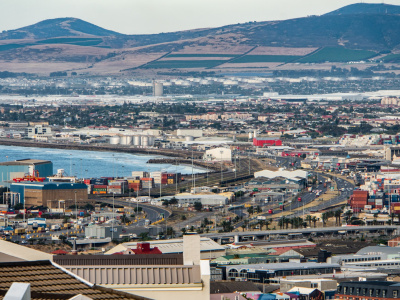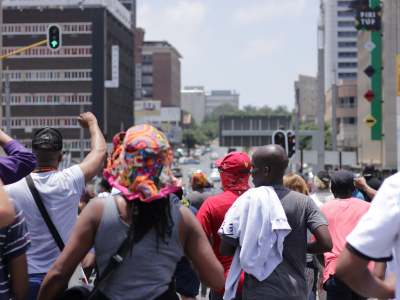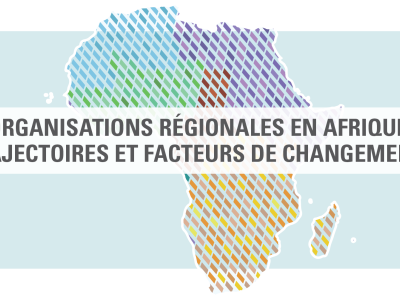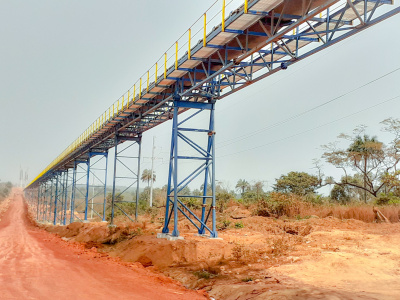
Defusing the terrorist mindset: a Maghrebi tale?
North African jihadis, returning home after fighting for the Islamic State (IS) in Syria, Libya and Iraq, are stirring debate in Maghrebi political and civil society circles. So far, North African governments have adopted a two-pronged approach to deal with the returning fighters: judicial reforms and prison rehabilitation programmes. The authorities apply the greatest vigilance in dealing with their returnees, and immediately upon their return impose harsh punitive sentences on those found to be involved with IS.
The governments of Morocco, Tunisia and Algeria continue to invest in legal reform and prison rehabilitation schemes to mitigate the social and security risks likely to arise as IS fighters return to society. Learning from the traumatic Mujahedeen returnees experience in Algeria and the thousands of arbitrary arrests that spread radical ideologies and subsequent attacks in Tunisia and Morocco, North African States are eager to demonstrate their advances in security issues, including in the handling of returning foreign fighters.
The policies and programmes in place effectively contain the immediate threat caused by returning fighters by separating them from society. But prison and rehabilitation are stop-gap solutions that in themselves cannot deter other groups in society from becoming radicalised or turning to violence. The efficiency of the proposed solutions is not guaranteed. Throughout North Africa, torture remains common practice, and the broad scope of anti-terror legislation (which targets activists and civil society, as well as alleged terrorists) makes it a dangerous entryway to ‘legal’ abuse.
Returnees: a sizeable inconvenience
The return of North African jihadis who fought alongside IS in Syria, Libya and Iraq to their respective countries is no longer anecdotal. While exact numbers are difficult to find, mixed governmental and non-governmental sources report that of the 1660 Moroccans who joined the ranks of IS, 236 had returned by October 2017. An estimated 87 fighters have made their way back to Algeria, the smallest North African exporter of IS recruits—responsible for about 170. For Tunisia which, by contrast, is the largest exporter of foreign fighters per capita in the world, over 800 fighters are believed to have made their return. Tunisian foreign fighters have returned, legally or illegally, using Libya’s smuggling routes, the country’s national airports, or even landing off the Mediterranean by boat. Tens of thousands of trips in total were aborted by the Tunisian authorities, putting an additional strain on the security and intelligence forces to monitor, try and, eventually, convict these individuals. Recently, Morocco refused the repatriation of IS-affiliated Moroccan women held in Kurdish detention facilities who were at risk of being used in prison swaps. Additionally, the cases of dozens of Tunisian IS fighters and their families stuck in Libya have stalled, with the wives and children of the Tunisian prisoners kept in limbo. For Rabat and Tunis, this settling of accounts may be distasteful, but it conveniently enables the authorities to avoid the legal, social and security ramifications linked to the return of such high-risk individuals to the country.
Indeed, Algeria’s experience with violence and terrorism has not shielded it completely from the more recent waves of trans-national jihadism. Still, the relatively small number of foreign fighters joining IS from Algeria underscores some of the lessons learned by the returning Algerian Mujahedeen from Afghanistan and the violence that ensued in the country in the early 1990s, resulting in over 300,000 deaths. Since then, Algeria has adopted both soft and hard de-radicalisation approaches “including a truce, reconciliation process, demobilisation and rehabilitation programs, as well as investing in development” argues senior analyst Dalia Ghanem-Yazbeck.
The positioning of North African states on the issue of foreign fighters underlines domestic disagreements about the direction of national security policies. In Tunisia, the security debate has been hijacked by partisan politics. The return of foreign fighters, in particular, sparked much turmoil at the Assembly of the Representatives of the People (ARP), which has been unable to find common ground on what policies to adopt. Some deputies even called for returnees to be stripped of their citizenship, while other political groupings, such as Ennahdha, argued for a more lenient approach. While debate is crucial and a necessary part of Tunisia’s democratic learning experience, decision-making processes have stalled due to the lack of agreement on issues of national interest.
Legislative reforms: anti-terror laws are not enough
Morocco, Tunisia and Algeria already have stringent anti-terror laws in place. In 2015, these three States revised their anti-terror judicial frameworks to include a plethora of security and intelligence mechanisms directly aimed at mitigating the challenges posed by returnees. Anti-terror laws and policies state unambiguously that any individual returning from a conflict zone would be automatically detained and investigated to determine their level of involvement in terrorist activities. Should there be proof of any level of involvement, even minimal, the individual would be subject either to administrative control or a prison sentence. These sentences range between a three-year minimum in Tunisia (with a minimum of five years in both Morocco and Algeria) to 20-year sentences in Morocco and Algeria (compared with 10 years in Tunisia). While these long sentences may deter people from returning, they do not necessarily deter the spread of radical ideas.
The Tunisian, Moroccan and Algerian security and intelligence services retain extensive intelligence on their nationals in IS strongholds. Domestically, drastic border control is in place to vet the intentions of travellers. Besides which, immediately upon their return, 90 per cent of those returning from conflict zones are either placed under administrative control or serve prison time following an investigation of their activities abroad. In cases where the investigation was unable to show a degree of involvement, the returnee is sent back into society but remains under surveillance.
North Africa’s systematic policy of imprisonment and administrative control provides an effective containment practice, but serves only as part of the solution to an alarming phenomenon that is likely to persist for some time. The overpopulated prisons – some at around 150 per cent of their capacity in Tunisia and Algeria, and up to 300 per cent in Morocco – are unable to sustain such an influx of high-risk convicts, thus undermining the purpose of the anti-terror legislation. To make matters worse, rather than containing the threat, prisons remain the largest hotbed of radicalisation and jihadi networking. Measures such as the classification of prisoners according to threat and influence have proven ineffective due to the large number of convicts crowded into an inadequate infrastructure.
North Africa’s security: Europe’s agenda?
North Africa is a strategic partner for Europe. The large North African diaspora established in Europe and the geographical proximity make these States ideal security partners for Europe that can also benefit from a mutual exchange of expertise. For Europe, investing in North African security is an attempt to keep acts of terror outside its own borders.
Several EU Member States, Japan and the United States are working with North African countries on the development and implementation of criminal justice reforms, including the building of maximum security prisons to alleviate the carceral load and deny extremists the opportunity to interact with other prisoners. Other reforms are aimed at training the security and prison personnel. However, a main cause for concern remains the systematic use of torture during detention and prison terms and the poor detention conditions.
Nevertheless, the close security cooperation between North African governments (Morocco and Tunisia, in particular) and EU Member States with regard to returning fighters lies in the considerable number of cases involving European bi-nationals and nationals of Morocco, Tunisia or Algeria. Such cases have been treated on an individual basis but overall, the policy line adopted by most European countries on returnees has been to send bi-nationals to North Africa, notwithstanding the human rights risks associated with their extradition.
This policy among EU Member States is ostensibly a calculated risk analysis: although transferring terror convicts to North African prisons has the potential to expose them to additional terror networks, harsher conditions and breed long-term threats, European intelligence and political leadership still deem this preferable to imprisoning such individuals in the EU and the risks they could still pose when eventually released. Moreover, similarly to Morocco and Tunisia’s unwillingness to repatriate their nationals, the Foreign Ministries of Germany and Sweden have openly admitted that no negotiations will be entered into on behalf of their nationals involved in conflict zones, even if some are likely to be executed.
Rehabilitation: the government’s affair?
In light of the debate over the ability of the prison system to rehabilitate terror convicts, the governments of Morocco, Tunisia and Algeria have launched de-radicalisation programmes in prisons aimed at defusing the jihadi mindset of the convicts. Government campaigns and programmes aimed at tackling radicalisation, such as ‘Ghodwa khir’ (Arabic for: Tomorrow will be better) in Tunisia and ‘Mossalaha’ (Arabic for: Reconciliation) in Morocco include interventions by convicted terrorists and prisoners. The aim of the sessions is to discuss and address the motivations that led these individuals to undertake terrorist activities, along with religious re-teaching and psychological support.
Morocco, which learned considerably from the arrests that followed the 2003 Casablanca bombings and subsequent attacks on its territory, is now leading sessions for the convicts with charismatic jihadis who abandoned their beliefs after finding true Islam under the monarchy’s benediction. Moreover, the Ministry of Religious Endowments and its imam training programmes contribute to de-radicalisation efforts through religious re-teaching to debunk radical messaging. The efficiency and reach of such programmes is yet to be determined, but they positively contribute to the soft security strategy.
Like Morocco, since IS, Algeria has increased its efforts to gain full control over the religious sphere and discourse: being tough on travel and foreign funding and leading large-scale campaigns to de-incentivise youth from accepting the false promises offered by jihadi recruiters, including on social media. When IS fighters return, the Algerian authorities couple traditional judicial mechanisms with religious re-training, a policy similar to that championed by Morocco and now also implemented in Tunisia.
While these efforts are commendable, State-led programmes for convicts already significantly alienated from the State are not the ultimate solution for rehabilitation. The State’s monopoly of the religious discourse could further alienate a section of the population that is already disillusioned by the political system and frustrated by socio-economic hardships, both of which greatly contribute to patterns of radicalisation. Domestically, the socio-political and economic environment of all three North African States puts a strain on the viability of the security policies in place. Finally, Morocco, Algeria and Tunisia need to refrain from adopting a security only policy that ignores the demands and aspirations of their populations.
About the author
Fatim-Zohra El Malki
DPhil Candidate, University of Oxford.
Twitter: @fzelmalki
Read the full magazine issue








